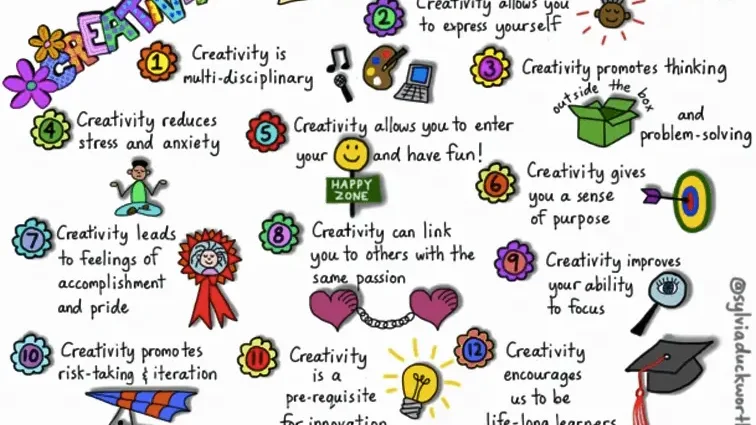Can the notorious teenage rebellion be avoided? Yes. Helping your child to unleash their creativity.
The crisis of adolescence is a well-known phenomenon and is taken for granted. Almost everyone passes through this stage of personality development, but its severity can be different. In mild cases, this manifests itself only in disobedience and stubbornness, in other cases, behavior can become antisocial and dangerous for others and the teenager himself, with manifestations of uncontrolled aggression and its unpredictable consequences. A teenager can join the company of those who use alcohol and drugs, which is not only dangerous for health, but also further weakens his control over his own behavior.
Read more:
- “All great things are created by nervous people”
At the heart of the crisis is usually an uncomfortable feeling of the need to be an independent and independent person in this world, a noticeable person who arouses interest and respect in others, but in the absence of a feeling of being such a person. Therefore, a teenager needs self-affirmation and achieves it by any improvised means. He certainly learns from his mistakes, and that is what ultimately shapes his personality, but how many more of these mistakes will there be before his personality is finally formed …
True, there is something almost more dangerous for a young person than the crisis of adolescence. It is the absence of such a crisis. This crisis may not come, to the great joy of short-sighted parents, if education from early childhood is carried out “with iron gloves”, within such strict limits that unconditional obedience is sought from the child. But such a teenager does not develop a personality, and then, as an adult, he also turns out to be dependent on others and completely helpless in the face of any dictate. However, he never becomes an adult. Life’s difficulties can easily break him; he will never learn to defend his positions. As a rule, he does not cause respect for people, at best pity and sympathy. If he is lucky, he finds those who begin to replace his parents – be it the boss, or the wife, or the husband.
What happens – either a severe crisis with dangerous conflicts, or personal infantilism, or both, if the parents give in to the teenager’s crisis behavior and he easily achieves his goal? Is it possible to mature without such a crisis? …
It turns out you can. But for this, parents must help the teenager in the same way that my mother helped me at the age of 13.
She enrolled me in a literary circle at the Moscow House of Scientists. It was a natural act – I have been writing poetry for a couple of years (if you can call it poetry …). In this circle, almost everyone was older than me – high school students and even students – but there was an atmosphere of free creativity, and the members of the circle, led by a wonderful teacher, accepted me so much that I felt like they were on an equal footing. It inspired me, it was important for my sense of self! What I read at the circle was discussed without any condescension to my age. But I was sure that what these guys praised, they really liked. And I participated equally in the discussion of everything written by others and freely joked. One student on his notebooks with verses wrote all the time in the abbreviated form “block. 1″, “block. 2 “, etc., and somehow, under general laughter, I suggested that he add these names, adding the word “not” to the word “Block”. Wherever I am – in class at school, at home, with friends, – I always remembered with pleasure that in a few days, as usual, I would be at this very adult circle, where I was received and treated with interest in what I write. I had no need to assert myself in any other, unnatural way.
If a teenager gets the opportunity for creative self-realization in any field of activity in an environment where this self-realization is possible, a crisis does not arise.










